European Court of Human Rights: Secret surveillance in Poland violates citizens’ privacy rights
On 28 May 2024, a precedent judgment was announced by the European Court of Human Rights. The court said that the operational control regime, the retention of communications data, and the secret surveillance regime under the Anti-Terrorism Act in Poland violate the right to privacy.
Filter resources
-

European Court of Human Rights: Secret surveillance in Poland violates citizens’ privacy rights
On 28 May 2024, a precedent judgment was announced by the European Court of Human Rights. The court said that the operational control regime, the retention of communications data, and the secret surveillance regime under the Anti-Terrorism Act in Poland violate the right to privacy.
Read more
-
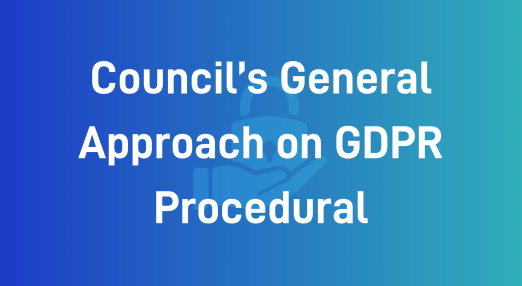
Council’s General Approach on GDPR Procedural
EDRi acknowledges the Council’s positive steps in their General Approach on the Proposal for additional procedural rules concerning the GDPR. Nevertheless, we emphasise the pressing need for enhanced legal certainty and the prevention of actions that could compromise the effectiveness of GDPR enforcement and erode trust, particularly concerning the protection of fundamental rights.
Read more
-

Position paper: GDPR enforcement done right
There is an urgent need to enhance legal certainty and prevent actions that undermine the effectiveness of and trust in GDPR enforcement. EDRi and Access Now have co-drafted a position paper on the EU Proposal for additional procedural rules concerning the General Data Protection Regulation (GDPR).
Read more
-

Resist Europol Document Pool
This document pool gathers all the relevant documentation regarding Europol’s powers and legislative reforms, critical analysis and research as well as tools for action.
Read more
-
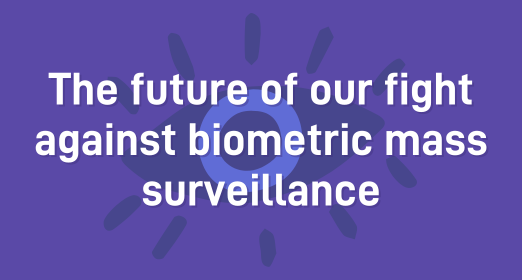
The future of our fight against biometric mass surveillance
The final AI Act is disappointingly full of holes when it comes to bans on different forms of biometric mass surveillance (BMS). Despite this, there are some silver linings in the form of opportunities to oppose BMS in public spaces and to push for better protection of people’s sensitive biometric data.
Read more
-
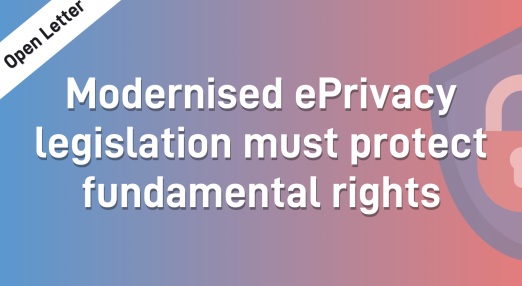
Open letter: Modernised ePrivacy legislation must protect fundamental rights
Today, 24 April, EDRi and 13 organisations call for robust legislation to complement and particularise the General Data Protection Regulation (GDPR), and call upon the next European Commission to include comprehensive plans for reforming the European Union’s ePrivacy legislation.
Read more
-
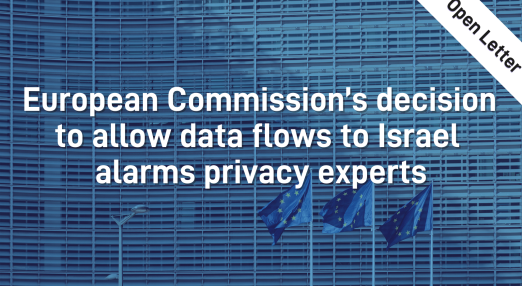
Open letter: European Commission’s decision to allow data flows to Israel alarms privacy experts
Today, 22 April, EDRi and Access Now coordinated an open letter supported by 11 civil society organisations that calls on the European Commissioner for Justice to provide further evidence and clarity on the decision to renew Israel’s status in the adequacy review.
Read more
-

Privacy is not for sale: Meta must stop charging for people’s right to privacy
Ahead of a crucial opinion by the European Data Protection Board (EDPB) – a grouping of the EU’s chief privacy regulators - on Meta’s plan to charge for privacy, the European Commission has opened an investigation that we hope will cast light on the unlawfulness of Meta’s so-called ‘Pay or Okay’ model, which has become the ‘talk of the town’ in Brussels.
Read more
-
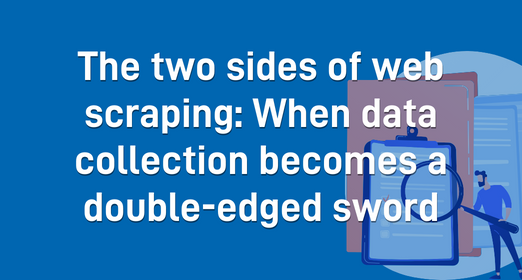
The two sides of web scraping: When data collection becomes a double-edged sword
Emerging AI technology often relies on methods of data collection – such as web-scraping – which can become a double edged sword when not used with safeguards and transparency or in ways that are unlawful. These methods have been used to achieve several key victories for digital rights, but can also be exploitative.
Read more
-

Greek Ministry of Asylum and Migration face a record-breaking €175,000 fine for the border management systems KENTAUROS & HYPERION
On 3 April, the Greek Data Protection Authority (DPA) slapped the Ministry of Asylum and Migration with a record-breaking €175,000 fine under the General Data Protection Regulation for the border management systems KENTAUROS and HYPERION. The DPA’s investigation started back in 2022, following a strategic complaint filed by the EDRi member Homo Digitalis and its partners in Greece.
Read more
-

The colonial biometric legacy at heart of new EU asylum system
On Wednesday (10 April), the EU is set to vote on a new set of asylum and migration reforms. Among the many controversial changes proposed in the new migration pact, one went almost unnoticed — a seemingly innocent reform of the EU's asylum database, EURODAC. Although framed as purely technical adjustments, the reality is far more malicious. The changes to EURODAC will massively exacerbate violence against people on the move.
Read more
-
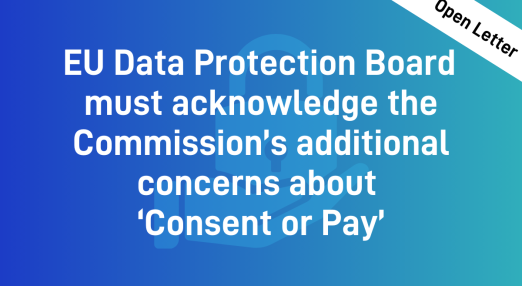
Open letter: EU Data Protection Board must acknowledge the Commission’s additional concerns about ‘Consent or Pay’
On 15 April, EDRi, noyb, Access Now and 20 consumer and digital rights organisations sent an open letter to the European Data Protection Board (EDPB) ahead of the EDPB’s decision on Meta’s “Pay or Okay” model.
Read more
